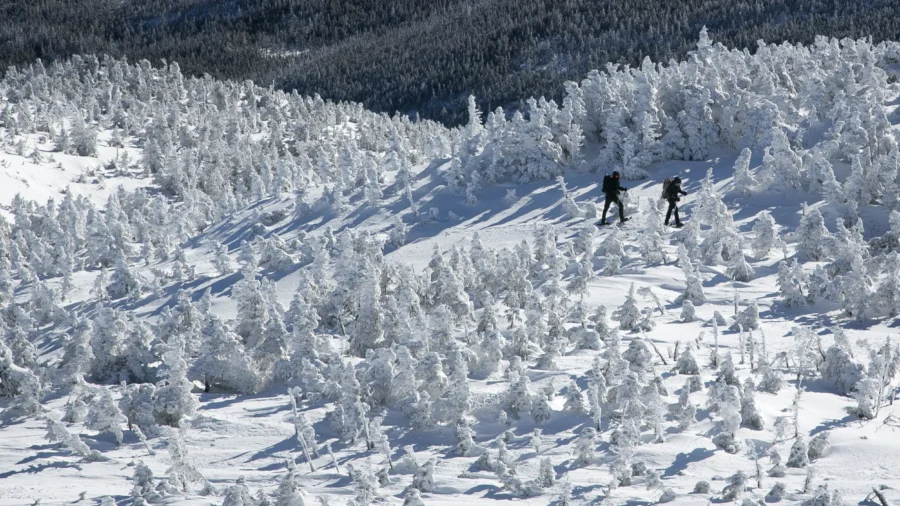Forest rangers successfully rescued an upstate New York hiker who survived a frigid night on a rugged Adirondack mountain peak trapped above a cliff, after she slipped and fell hundreds of feet down from the summit.
“I thought I might have froze to death. There were like 45-mile-an-hour winds (70 kph) up there,” veteran hiker Hope Lloyd said Wednesday about her recent ordeal.
Ms. Lloyd, 46, was solo hiking on the day after Christmas when she lost her footing at around 5:30 p.m. near the top of South Dix Mountain. Ms. Lloyd and state rangers said she skidded several hundred feet over steep snow and down a slippery rock slab. She was heading straight toward a cliff but was stopped by a small spruce tree.
“That’s the only thing that saved me,” Ms. Lloyd said in a phone interview. “If I was a little bit to the left or a little bit to the right, I wouldn’t be here right now.”
Conditions were treacherous on the 4,060-foot (1,235-meter) mountain, one of the Adirondack High Peaks, with heavy rain and areas of deep snow and slick ice, according to Ranger Jamison Martin. Temperatures were in the low 30s (around zero degrees Celsius) on the summit, located roughly 100 miles (160 km) north of Albany.
“It’s basically what we call hypothermia weather: wet, cold, just the mix of those things. It’s a bad combo,” Mr. Martin said in a video detailing the rescue.
Ms. Lloyd is an experienced hiker who has climbed all 46 Adirondack High Peaks, twice. But she was exhausted and felt it was too perilous to move from her spot because she might slip again and start sliding toward the cliff. Even with her headlamp, it was too dark and foggy to see. She phoned for help.
Ms. Lloyd had an emergency blanket and kept herself moving in place as much as possible to fight off the cold.
Mr. Martin and another forest ranger reached her by 1:30 a.m.—about eight hours after her fall. They gave her warm liquids, food and dry clothing and soon helped her bushwhack back to the trail. They reached her vehicle at 6:30 a.m.
The resident of South Glens Falls, New York, suffered some scrapes and bruises but realizes it could have been much worse.
“I feel extremely grateful. Extremely grateful,” she said. “I just want to hug everybody.”
By Michael Hill


